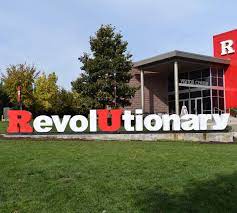Enhance your CS Experience

At the department of Computer Science at Rutgers University, we strive for excellence in undergraduate education. Our undergraduate program offers a solid foundation in software, systems and theory while offering elective courses in Artificial Intelligence, Internet Technologies, Databases, Graphics and more. We offer undergraduate students the opportunity to participate in cutting edge research and also provide students with newly designed collaborative computer labs and maker spaces. Undergraduates also have the opportunity to get involved with our many University CS affiliated clubs.
Rutgers Computing Academic Tutoring for Students
Improve CS111 and CS112 academic performance by attending tutoring hours. The CS department offers free tutors through AWiCS (Advancing Women in CS). Tutors are peer students that are further along the CS program.
The goal of the program is to:
- create additional peer-led drop-in tutoring (similar to office hours) to assist all students in 111 and 112 with academic work.
- create an inclusive, diversity empowered environment for students taking CS111 and CS112 courses via a roster of 80% female tutors.
- build a peer network that fosters encouragement and support for the learning and academic persistence of all students regardless of identities.
- assist Instructors and Learning Assistants in guiding the students to advance their knowledge and understanding of the course(s).
How it works:
- RU CATS is only active during the Fall and Spring semesters.
- Office hours are held walk-in mode (similar to office hours) in two different ways: in-person or virtually.
- To access in-person tutoring, locate the “RU CATS” sign inside Hill Center 248 on Busch Campus.
- To access virtual tutoring, go to 111 or 112 Canvas page, and click on “Tutoring” on the left side panel.
- RU CATS tutoring hours are as follows:
- In-person
- Mon – Thur: 1 – 7pm
- Fri : 1 – 5pm
- Virtual
- Sun: 1 – 5pm
- Mon – Thur: 1 – 7pm
- Fri : 1 – 5pm
- In-person
Tutoring Guidelines
- A tutor’s core responsibility: To answer specific questions that help clarify students’ code logic or understanding of a specific lecture topic. The tutors are NOT to fix, debug, or write any code into any student’s assignment(s).
- Tutoring expectations:
- Tutors will spend no more than 15 minutes with one (1) student at a time. If the question is left unanswered, resources will be provided to find answers. If more tutor support is needed, then the tutor will round-robin to other students first.
- Tutors can advise the student on whether or not the code achieves what it’s intended to do; they will not tell you how to do the course assignments. Students are expected to explain (in plain English) what they are trying to accomplish with a certain piece of code. See “Tutors can conditionally deny support” for more details.
- Tutors will not touch a student’s keyboard as tutors will not code a student’s assignment for them. Tutors can help clarify your assignment logic by mapping/drawing it out with the student.
- Tutors can conditionally deny support: If the student cannot explain their code logic in plain English OR the student is simply regurgitating code, THEN the tutor does not need to offer any help until the student is able to do either the former or latter.
- Tutors are here to assist those genuinely putting effort into their coursework. If you demonstrate a commitment to completing the assignments honestly, our tutors are more than willing to provide support. However, assistance will not be extended to those attempting to cheat their way through the course via AI chatbots or other methods.
// TL;DR Tutoring Guidelines while ( student.askingQuestions() ) { if ( student.cannotExplainInPlainEnglish() || student.isRegurgitatingCode() ) tutor.denyHelp(); else tutor.answerQuestions(); }
Douglass WiSE offers a number of Living and Learning Communities for students pursuing STEM majors.
First-year STEM Living-Learning Communities (LLCs) are our most vibrant and robust experiences supporting success and persistence in STEM. There are two LLCs on Busch Campus, and one LLC on Douglass campus. Each LLC includes three components: Living, Learning, and Community that cultivate the development of students’ STEM identity.
Students are strongly encouraged to consult with a CS advisor to check on their progress toward satisfaction of departmental degree requirements, and also to see if their course selection is consistent with their career goals.
Suggest visiting an advisor once per semester.
Check for Office Hours Advising.
The training of M.S. graduates in computer science provides students with the knowledge and skills to:
- hold professional positions in
- the development and design of computer systems
- the design and implementation of new software applications
- hold administrative positions that require planning and evaluation of computer-based systems
- teach computer science
- be prepared for further study and research at the doctorate level.

